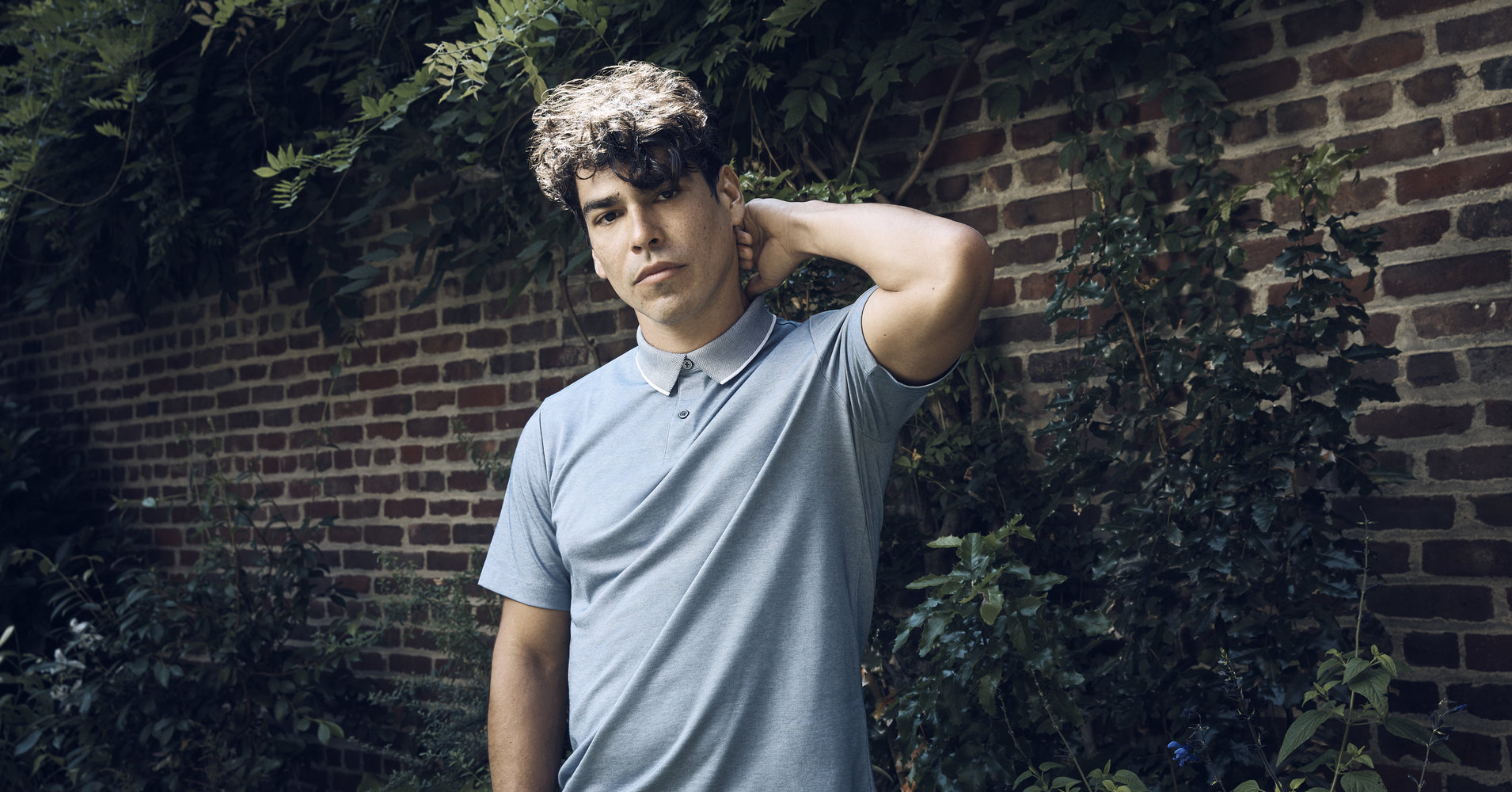[ad_1]
In New York, in the middle of July, if the fickle subway system allows it, you’d be wise to arrive at a destination 10 minutes early. You’ll need that time to let the sweat evaporate, to stamp out the damp spots that have betrayed your outfit.
Raúl Castillo forfeited his chance to cool down before shaking my hand at a Manhattan hotel restaurant on a sweltering Thursday morning. I didn’t mind. It was an honest mistake.
The “Looking” star was running slightly late and looking slightly frazzled when he bounded toward our table. He’d confused this hotel for another within walking distance where, the previous night, Castillo had attended a screening of the new Alexander McQueen documentary with his girlfriend, the costume designer Alexis Forte, who has the late fashion maverick’s biography at their Brooklyn apartment.
It’s cute to see celebrities frayed, even ones who are still building their marquee value. Castillo is the type who hasn’t yet abandoned public transportation when navigating the city, even though it’s becoming harder to do so without attracting strangers’ gazes. While trekking home from the “McQueen” event, a Latina teenager tapped him to say she loved “Atypical,” the Netflix series in which Castillo played a charismatic bartender sleeping with Jennifer Jason Leigh’s married character. The teenager’s mother loved “Seven Seconds,” the Netflix series in which Castillo played a narcotics detective tending to a racially charged investigation.
Raúl Castillo: a guy you can bring home to Mom, punctual or otherwise.
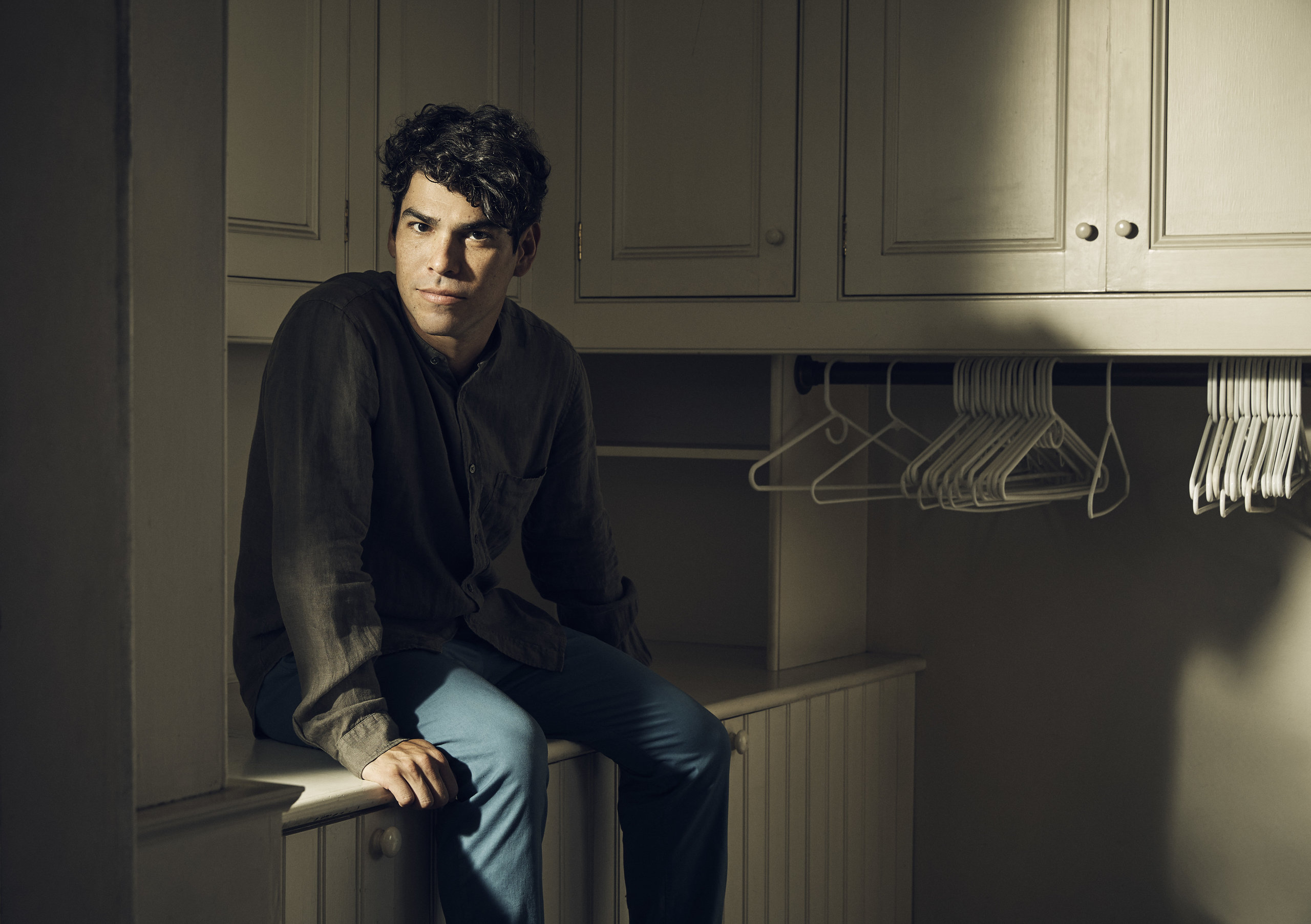
Eric Ogden for HuffPost
It’s his voice that people recognize, the 40-year-old actor said, a modest notion considering his breakthrough role as the sensitive barber Richie on “Looking” made Castillo a veritable heartthrob, despite the HBO show’s modest ratings. But it’s true that his warm baritone gravel is a distinguishing trait. Earlier this year, when I saw “Unsane,” Steven Soderbergh’s scrappy iPhone thriller set inside a mental institution, I recognized Castillo’s intonation before his face appeared onscreen.
That’s a significant feat. Castillo mumbled so much as an adolescent that a teacher recommended he see a speech therapist. He refused, instead reminding himself to enunciate or else using the impediment as a defense mechanism. “I have all these things wrong with my voice,” Castillo said, though few today would agree.
Castillo’s cadence may be growing familiar, but fame hardly seems like his long game. This is, after all, a guy who studied playwriting ― hardly the creative pursuit that commands the brightest spotlight ― at Boston University, after which he paid about $300 a month to live in a garage in Austin and perform local Chicano theater. “We the Animals,” a Sundance indie opening this weekend, marks the first time Castillo is the one generating a project’s star power. He portrays the father of three tight-knit boys storming through a wooded town in upstate New York. The movie, adapted from Justin Torres’ autobiographical novel of the same name, combines elements of “Beasts of the Southern Wild” and “Moonlight” to capture a domestic home life that’s equal parts tender and volatile, where abuse and affection are equally common.
Castillo’s enthusiasm about “We the Animals,” and about the possibly of again working with its director, Jeremiah Zagar (“Captivated: The Trials of Pamela Smart”), speaks to his ambivalence toward the celebrity ecosystem.
“He could be like Tom Cruise without the child slavery,” Zagar said, roasting the “Mission: Impossible” moneymaker’s Scientology association (and its alleged history of forced manual labor). “Raúl’s that kind of a dude. He’s a perfect-looking dude, and yet he’s incredibly real and honest and true. There’s never a false note. He’s also incredibly collaborative. As a director, that’s a wonderful thing. I didn’t know what I was doing, really, because I had never directed a narrative before, and Raúl had a way of making me feel comfortable and confident in my own beliefs and my own material. He’s so seasoned and so clear about what he needs to do to make a scene work and a character work and to elevate other people around him.”
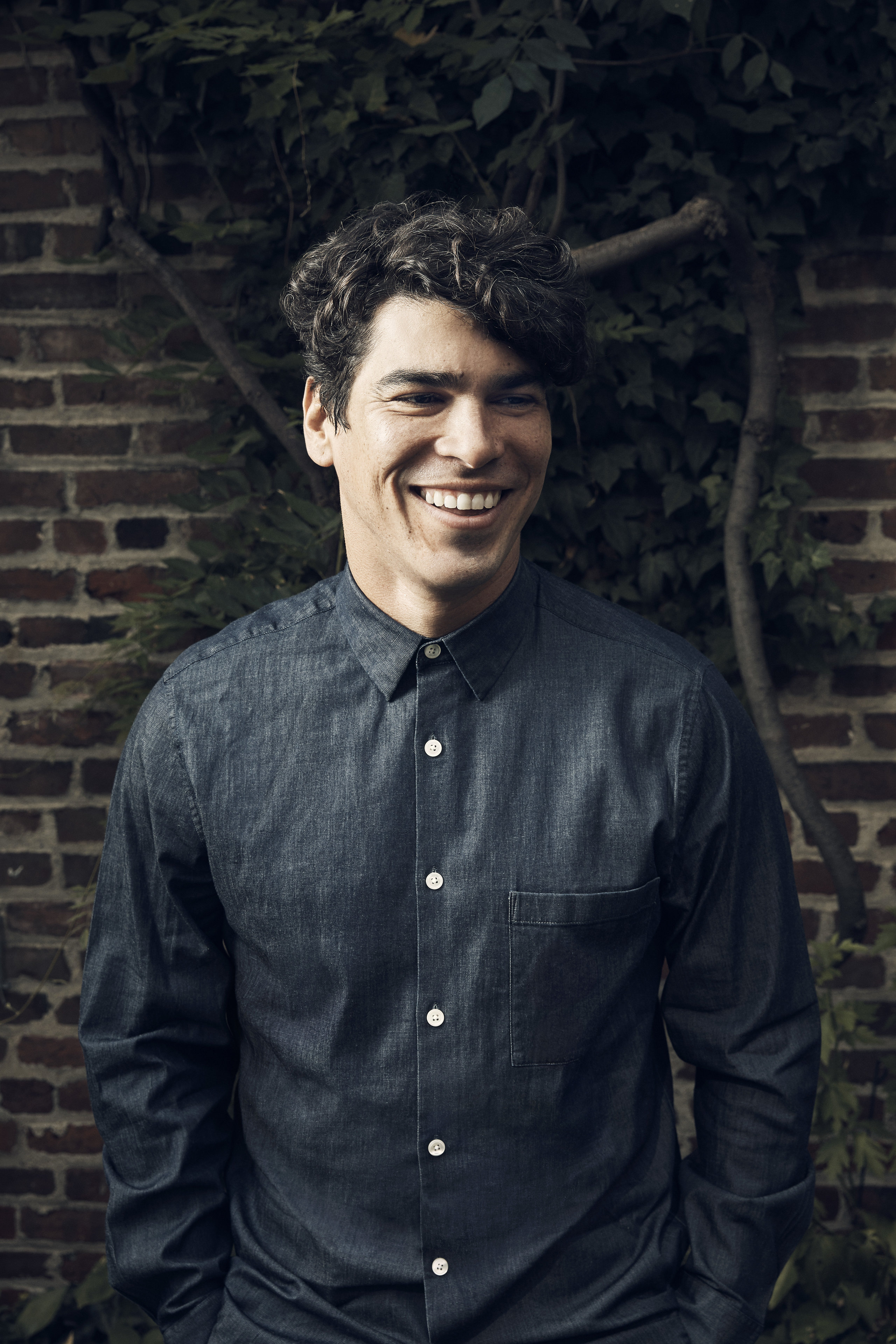
Eric Ogden for HuffPost
It’s a small movie with grainy aesthetics and an impressionistic lyricism ― in no way the kind of thing that will make a killing at the box office. For someone who first fell in love with theater by discovering the plays of Puerto Rican and Mexican writers like Miguel Piñero and Luis Valdez in his high school library, playing the complicated patriarch of a mixed-race family feels like a destiny fulfilled. (Sheila Vand, star of the Iranian horror gem “A Girl Walks Home Alone at Night,” plays Castillo’s wife.) At this point, opportunities to extend his commercial footprint ― guest spots as a cannibal on “Gotham” and a music teacher on “Riverdale,” for example ― will find Castillo one way or another.
“I’ve always felt that I was never cookie-cutter,” he said. “For as much as I tried to fit my square peg into round holes, constantly, my whole career, I could never do it. Whenever I read ‘We the Animals,’ I didn’t think I would be cast in that film. […] I felt viewed more as a Richie. People think I tend to find those roles easier than I do a role like this, ’cause it’s harsh. I knew that I could do it. I’m so grateful for both Jeremiah and Justin, who did see that in me.”
Born in McAllen, Texas, a midsize agricultural town that sits on the Mexican border, Castillo’s triumphs were born out of people believing in him at the exact right moments. He belongs to a first-generation immigrant family, even if home was a mere 10 miles down the road. Castillo didn’t feel othered, but his dual identity instilled a sort of anti-establishment fluster.
“I just saw a lot of bullshit in the structures that were established for me,” he said. “I found a lot of hypocrisies. People valued money, and I think when I was very young, I valued money and I didn’t have it. I think I hated myself for it.”
Slowly shedding the Catholic mysticism that once awed him, he took up bass and played in punk bands. When his friend Tanya Saracho, who would go on to write for “Looking” and “How to Get Away with Murder,” likened his GPA to a lifeline out of McAllen, Castillo decided to care about school. But in Boston, he was suddenly the minority. His “bad attitude” kept him out of second-year acting courses, until mentorship from a professor of color let Castillo understand that he shouldn’t punish himself for being subjected to an overwhelmingly white institution. And when he moved to New York in 2002, his pal Mando Alvarado, now a writer for “Greenleaf” and “Vida” (on which Castillo will soon appear), posited presentation as a mark of self-worth; if he didn’t put care into his résumé and headshot, why should anyone put care into hiring him?
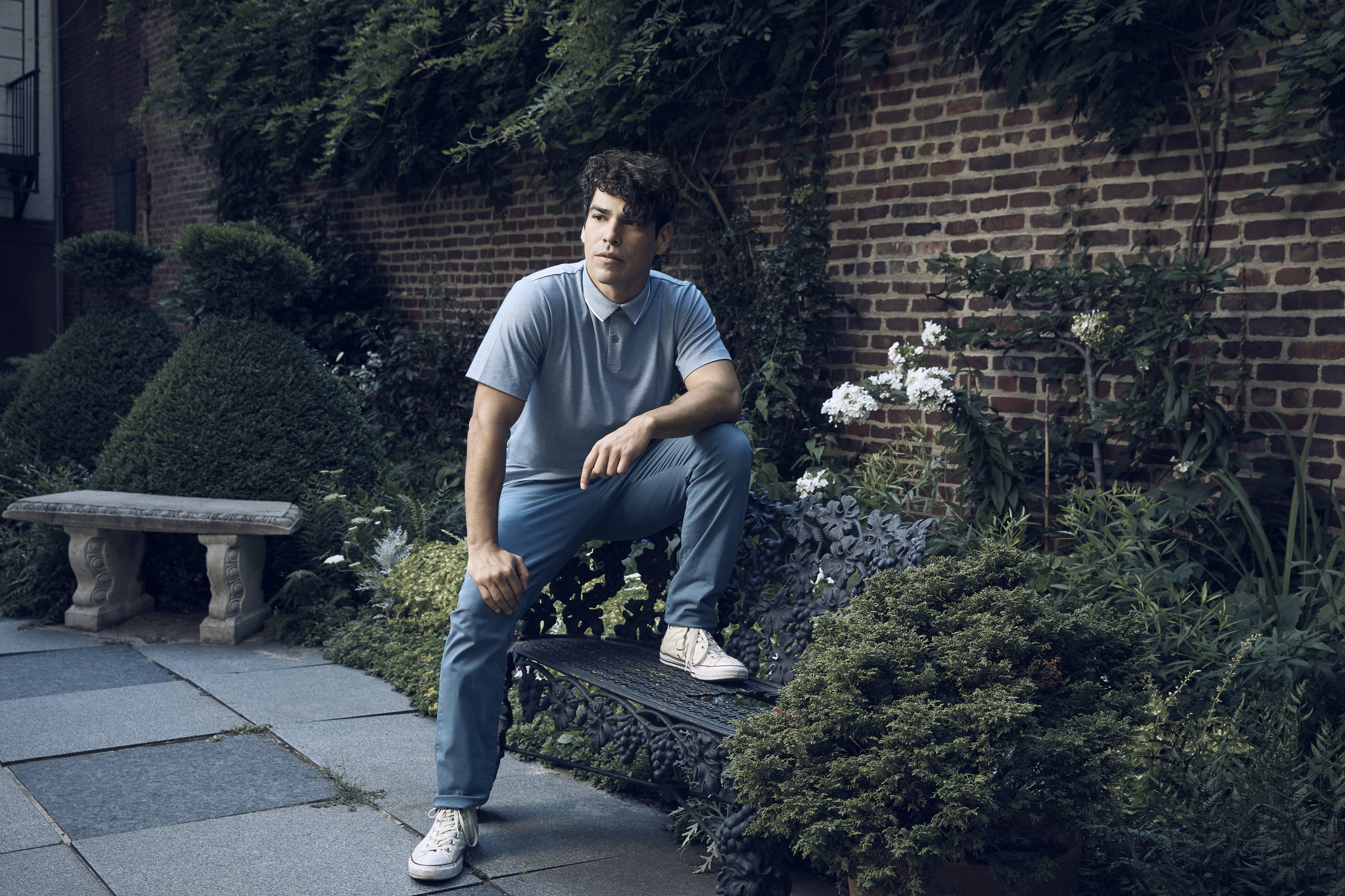
Eric Ogden for HuffPost
Of course, when success takes years to manifest, it’s easy to forget the lessons you’ve learned. Living with four or five roommates at once, Castillo worked his way into the Labyrinth Theater Company, an experimental off-Broadway troupe founded by Philip Seymour Hoffman and John Ortiz. He still wanted to be a writer ― in high school, Castillo only ever acted to impress girls anyway ― but in 2006 he found himself starring in a Labyrinth production of “School of the Americas,” a play by “Motorcycle Diaries” scribe José Rivera. The acting bug stuck. In 2009, his play “Knives and Other Sharp Objects,” a multigenerational drama about class in Texas, opened off-Broadway, earning a mixed review from The New York Times.
Still, nothing quite lasted. The business side of things was grueling, and his coffee-shop gigs were getting old, even if he did count Lili Taylor and RuPaul as customers. An agent sent him on auditions for “huge” Hollywood movies ― which ones, Castillo wouldn’t say ― but dropped him after none proved fruitful. He was ready to give up altogether when “Looking” came around. Castillo had starred in the short film that became a prototype for the series. Its director, Michael Lannan, called him to audition for Richie (the character he’d initially played) and Augustin (a more prominent Latino character who worked as an artist’s assistant). He didn’t land either role, even though he’d originated one of them.
But by the time “Looking” was a week away from shooting, a Richie still hadn’t been cast. The producers called Castillo to read for Andrew Haigh, the gifted English director who shepherded the half-hour dramedy. Haigh had seen Castillo in an indie mystery called “Cold Weather” that gave him “street cred.” Crashing on John Ortiz’s couch in Hell’s Kitchen, wondering what else he could do with his life, Castillo was at a bar one night when he received an email with a contract attached. He had no representation to negotiate his salary, but it didn’t matter: After living check to check, he was on HBO.
“I was like, ‘Yes. Take my soul. I don’t care. Pay me. I need money,’” Castillo recalled. “I needed not just a paycheck but the affirmation. I needed something artistically that I could sink my teeth into that had value to it. Something that was substantial. Something that had a real point of view. I needed a character that gave me a platform to do what I do in a really great scale in the best way possible. And it ended up being that. That show was such a great gift to me.”
All of Castillo’s ensuing fortune can be linked to “Looking.” It made him a sex symbol, a love interest, a fan favorite, a rising star whose claim to fame meant a great deal to anyone hungry for frank depictions of queer intimacy. Richie was the good-natured, self-righteous ideal ― a perfect counterpoint for Patrick (Jonathan Groff), the series’ unsettled protagonist. It became gay viewers’ great disappointment when they learned that Castillo, their anointed hunk, was in fact straight.
“His inability to be fake as a person translates directly into his acting,” Groff said. “There is nothing extraneous or false about Raúl, and he brought a grounded, honest integrity to the character that absolutely no one else could have. He’s also just innately magic on screen and has that ‘it’ factor.”

Eric Ogden for HuffPost
Perhaps it was Castillo’s dual identity as a Mexican-American that helped him shine as a gay, blue-collar Californian who was sure of himself despite being rejected by his family. It’s certainly what lets him shine as the cash-strapped paterfamilias, caught between unremitting love for his kin and an inescapable pattern of violence, in “We the Animals.” This dyad comes at time when Castillo sees his identity splashed across the evening news.
McAllen houses the U.S. Border Patrol’s busiest hub for detaining immigrants suspected of entering the country illegally. While Castillo was vacationing in Europe and playing make-believe on sets, children were being ripped from their parents’ arms in his hometown.
“I would always have to explain where McAllen was, and now it’s this name you’re seeing constantly in the news for all these reasons that represent, for me, everything that’s wrong with this country,” Castillo said. “It was paralyzing. I was sitting in a beach in Europe, wondering why I deserved to be there. My parents had access to this country in ways that people who are coming from longer distances don’t. We had the great gift of citizenship, which is an incredible privilege. But my parents were immigrants, and they navigated that dynamic our entire lives. I saw my mom and my dad deal with all the insecurities and all the precarious nature of what being an immigrant in this country is. […] Having grown up going back and forth across the border throughout my whole life, it’s disheartening and upsetting to see what’s happening. And then to think about this particular movie that deals with children, who are especially in that age when their minds are being formed and their view of the world is taking shape, to think about [the ones] locked in cages is enraging.”
Castillo may be miles from that crisis now, but he’s done more to better the world for brown people than he can know. His goal hasn’t been to diversity Hollywood roles written for white ensembles; it’s been to find work that naturally accentuates the grooves of his Latino heritage. He saw almost no Chicano role models in popular culture growing up, and now he is writing and starring in artistic endeavors that paint all shades of the human experience ― gay, poor, brown, cannibalistic, whatever ― with a dynamic brush.
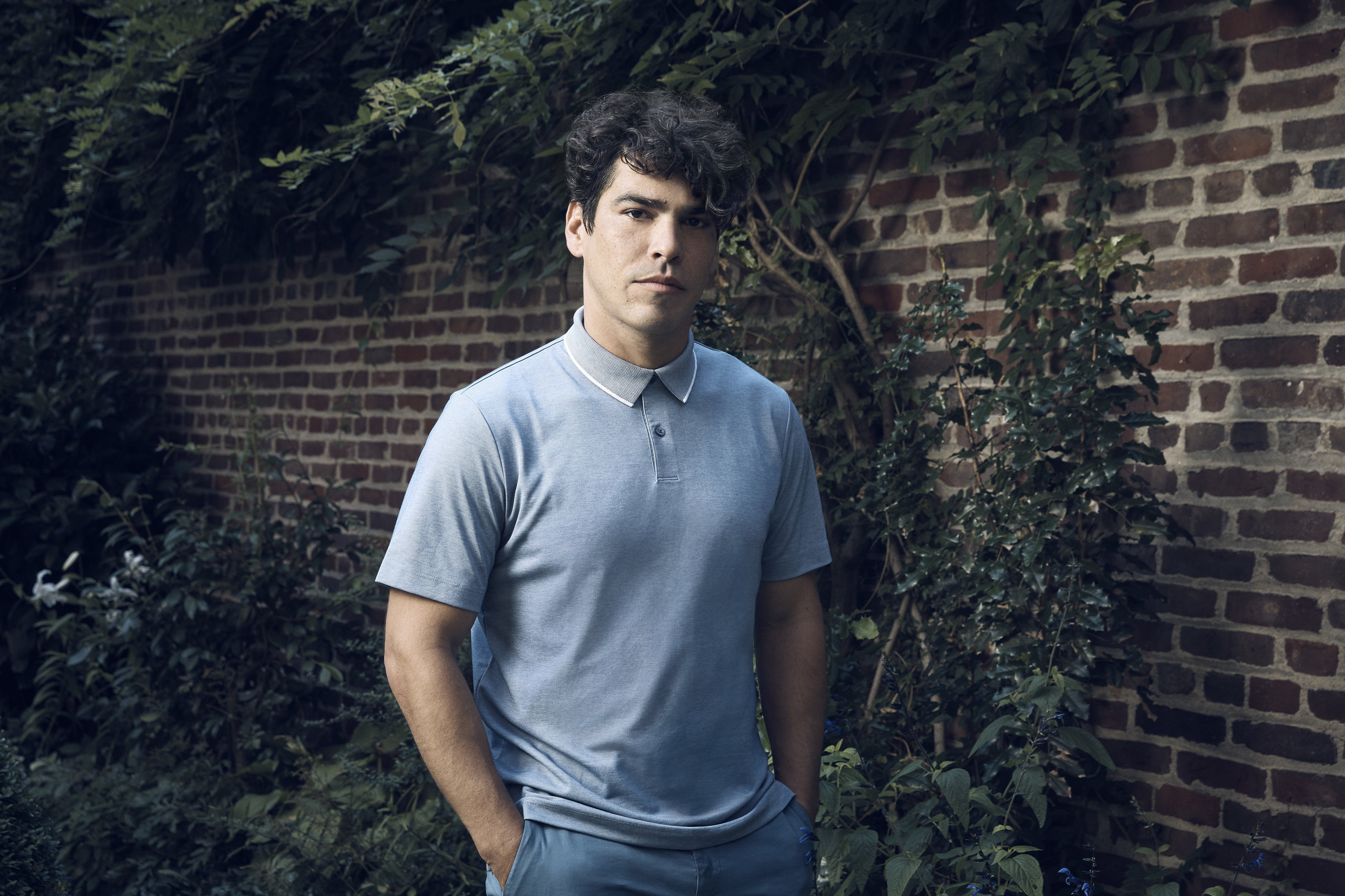
Eric Ogden for HuffPost
Which isn’t to say everything’s gotten easy. He was slated to play the lead in “Mix Tape” (a musical drama set in Los Angeles) and appear on “One Day at a Time” (the Norman Lear reboot), but has since exited both series and would rather not disclose why. I got the sense, during our two-hour breakfast, that Castillo is still protective of how he is perceived. Maybe he always will be. He’s comfortable reflecting on his upbringing and his relationship with race ― concepts he’s spent his whole life processing ― but being candid about recent setbacks, as routinely asked of celebrities in interviews, does not yet come easy.
It’s the “ego business bullshit” that still eats at him. It’s what eats at most of us. But when someone makes a name for himself, that burden slowly fades to the periphery, replaced by a newfound comfort, even power. The man who once served RuPaul coffee now shares an agent with the drag dignitary.
“For so long, it was all feast or famine,” Castillo said. “I just took work when I could take it. And at this point, I’m in a new place where I want to be more thoughtful about the roles that I take on from here on out. The projects, the roles, the people. I’ve learned so much in the journey that now I want to apply all that and also honor my experience, because at this point I want to work with people who challenge me in all the right ways and push me to become a better actor and a better artist.”
Photography by Eric Ogden. Photo shoot produced by Christy Havranek. Grooming by Claudia Lake. Clothing courtesy of Theory.
[ad_2]
Source link

